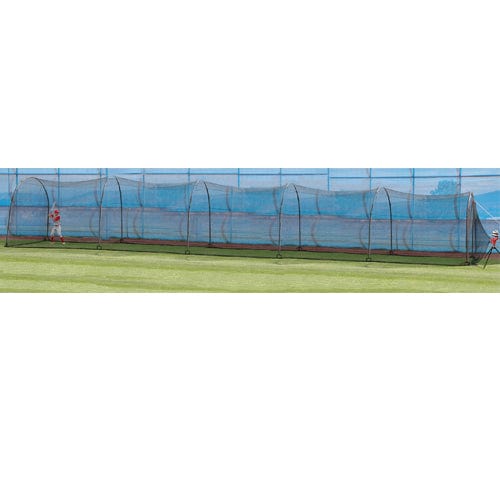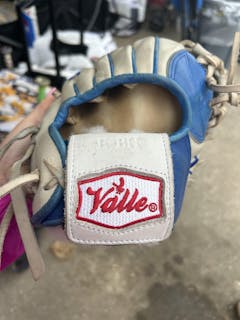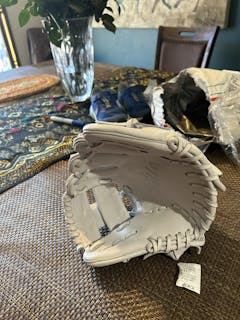Shipping in USA
Batting Cages
The Baseball Home brings you our batting cages collection, expertly curated to provide the highest quality products for maximizing your baseball and softball training. We understand the importance of having reliable, durable batting cages to help you improve your skills and take your game to the next level, whether you're setting up in your backyard or at a commercial facility.
Read more
Overview of Batting Cages
Batting cages are essential tools for baseball and softball players looking to enhance their hitting abilities. Our collection features a range of batting cage nets, frames, turf, and equipment designed to withstand the rigors of regular use. With various sizes and materials available at different price points, you can find the perfect setup to suit your specific needs, whether you're a beginner or a seasoned player. You can also shop outdoor batting cages with us.
Batting Cages Product Types
In our batting cages collection, you'll find a variety of product categories, including batting cage nets, frames, turf, and accessories. Each category offers a range of options to help you create the ideal training environment for your backyard or commercial facility.
Batting Cage Nets
Our batting cage nets come in three different materials: #21 nylon, #42 poly, and #60 poly. The #21 nylon nets are durable and suitable for most training needs, while the #42 and #60 poly nets offer increased strength and weather resistance. These nets are available in 35', 55', and 70' sizes, accommodating both baseball and softball players. Choose the right net based on your durability and price requirements.
Batting Cage Frames
We offer two types of batting cage frames: 1 5/8" and 1 7/8" galvanized steel. The 1 5/8" frames are sturdy and weather-resistant, making them a great choice for most environments. For those seeking extra durability and strength, the 1 7/8" frames are the way to go. Both options provide a reliable structure for your batting cage net, whether you're setting up an indoor batting cage or outdoor hitting cage.
Batting Cage Turf
To complete your batting cage setup, we offer high-quality turf options. Our artificial turf is designed specifically for batting cages, providing a realistic surface for ground balls and minimizing wear on the cage floor. The turf is available in various sizes to fit your specific batting cage dimensions.
Batting Cage Equipment
In addition to nets, frames, and turf, we offer a range of batting cage equipment and accessories. From L-screens for pitcher safety to pitching machines like Jugs, we have everything you need to create a comprehensive training environment. We also offer batting cage balls, ensuring you always have a supply of practice balls on hand.
Our accessories range includes:
How to Choose a Batting Cage
When selecting a batting cage, consider your available space, skill level, and intended use. For those with limited space, a 35' net may be the best option, while players looking to simulate game-like conditions may prefer a 55' or 70' net. If you plan to use your batting cage frequently or in harsh weather conditions, opt for a #42 or #60 poly net and a 1 7/8" frame for added durability.
Think about whether you want an indoor or outdoor batting cage, as this will impact the type of frame and net you choose. Outdoor cages may require more durable materials to withstand the elements, while indoor cages can be more focused on performance and training features.
Installation Process
Before installing a batting cage, it's essential to assess the intended area carefully. Consider factors such as the dimensions of the cage, the type of surface you’ll be setting up on, whether indoor or outdoor, and any zoning laws or space constraints. Detailed planning ensures that your installation process is smooth and that the final setup meets your training needs.
Choosing the Right Equipment
Professional vs. Residential: Select batting cage equipment that suits your level of usage. Professional-grade cages are built for high-traffic facilities, while residential cages are perfect for personal or less frequent use. Also, choose between a fixed or retractable system based on your space usage.
Ground Preparation and Foundation
For outdoor cages, ground preparation is critical. The area should be leveled, and, in some cases, a concrete foundation might be required for stability. Indoor cages may need special flooring or anchoring systems to ensure safety and usability.
Assembly and Installation
Assembling a batting cage can be complex and may require more than one person. Follow the manufacturer's instructions meticulously or consider hiring professionals to ensure a safe and proper setup. Secure all posts, nets, and cables according to instructions to maintain the integrity of the structure.
Inspection and Maintenance
Once installed, inspect your batting cage regularly for any signs of wear or damage. Proper maintenance is vital for safety and longevity. Look for issues such as net tears, loose fittings, or corrosion and address them promptly to keep your batting cage in excellent condition for years to come.
Getting Professional Help
If the installation process seems daunting, professional installation services are available. Experts can handle the entire process, from planning to final inspection, ensuring your batting cage is installed correctly and safely.
Understanding the Cost of Batting Cages
When considering installing a batting cage, it's essential to understand the associated costs to plan your budget accordingly. Generally, the price can vary based on several factors, including the size, materials, and features of the batting cage.
Batting Cage Size and Materials
The size of your batting cage plays a significant role in determining the overall cost. Larger cages require more materials, such as netting, poles, and hardware, which can increase the price. The quality of the materials also impacts the cost, with higher-grade netting and sturdier frames being more expensive.
A basic batting cage can range from $1,000 to $2,500, while more elaborate setups with premium materials can cost anywhere from $7,500 to $20,000 or more.
Location and Installation
Your geographic location can affect the cost of installing a batting cage. In areas where baseball and softball are extremely popular, there may be higher demand for installation services, leading to increased prices. Additionally, the cost of preparing the site, such as leveling the ground or pouring a concrete base, should be factored into the overall budget.
Equipment and Accessories
The type of equipment you choose for your batting cage will also impact the total cost. Pitching machines, protective screens, batting mats, and other accessories can add to the expense. High-end pitching machines alone can cost several thousand dollars, while protective screens and batting mats can range from a few hundred to over a thousand dollars each.
Maintenance and Upgrades
Ongoing maintenance and potential upgrades should also be considered when budgeting for a batting cage. Regular upkeep, such as replacing worn netting or servicing pitching machines, can add to the long-term costs. If you plan to add features or amenities to your batting cage in the future, such as video analysis tools or additional hitting stations, factor these potential expenses into your financial plan.
At The Baseball Home, we're committed to providing you with the best batting cages and equipment to help you elevate your game. With our carefully selected collection, you can trust that you're getting high-quality, durable products at competitive prices. Start your journey to becoming a better hitter today by exploring our batting cages collection and finding the perfect setup for your backyard or commercial needs.





































